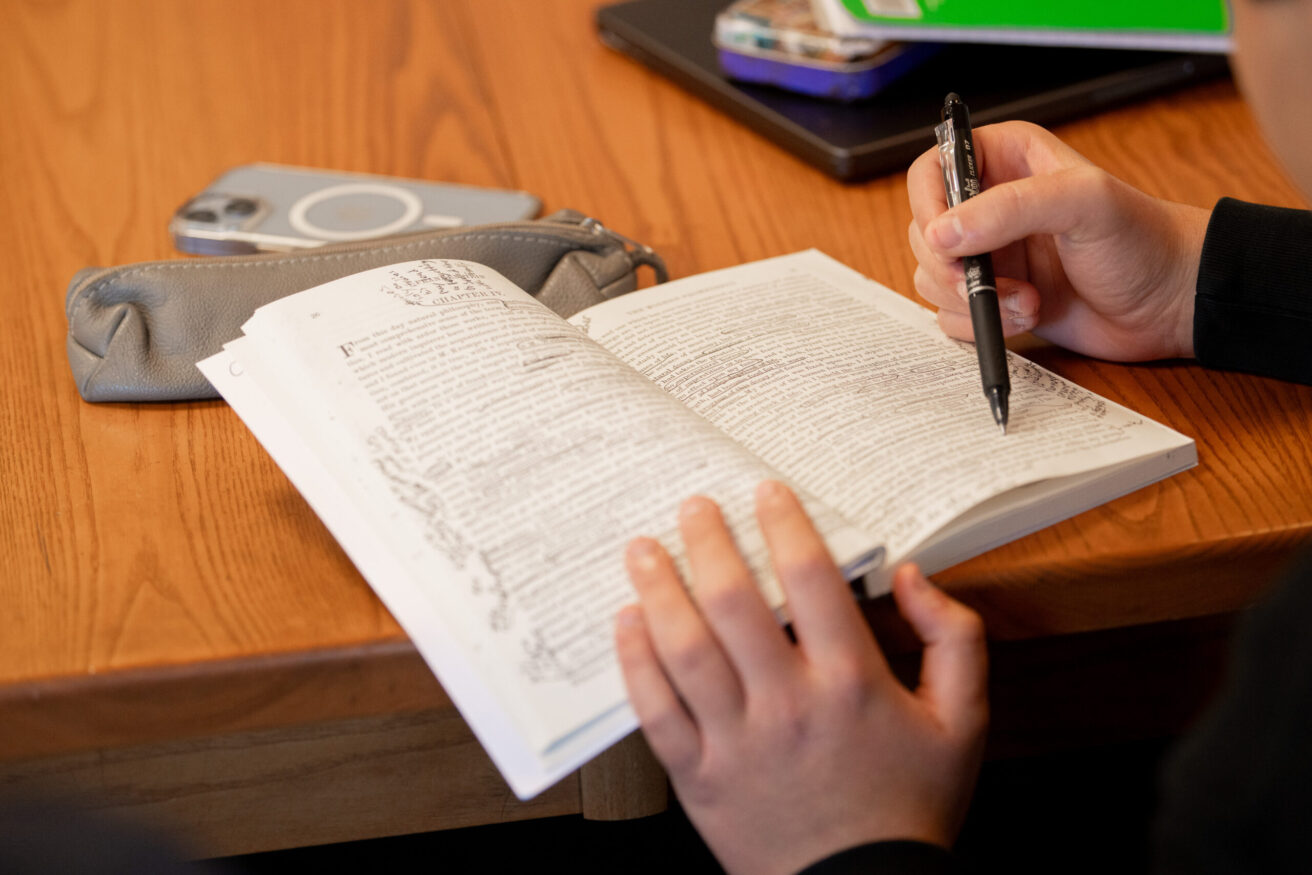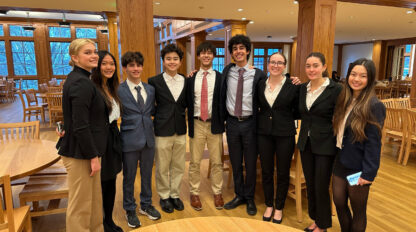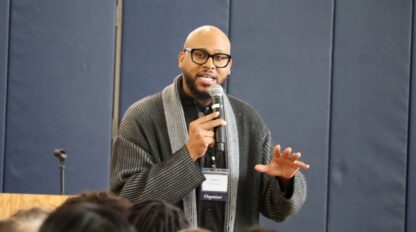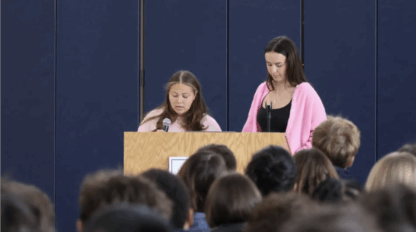A Nation in Two Keys

Erin Yu ’27
Erin Yu ‘27 and Matthias Paulson ‘26 got this year’s Upper School Thanksgiving Assembly off to a lyrical, thought-provoking start with their recitation of Erin’s powerful poem, “A Nation in Two Keys.” Erin and Matthias serve as BB&N’s poet co-laureates for the 2025-26 year.
We are delighted to share Erin’s poem with you here:
A Nation in Two Keys
Erin Yu ’27
A.
In this country, the morning light falls unevenly.
Through one window, the glass is fogged,
its frame swollen from years of weather
no one bothered to record.
Some rooms stay dim
even after the sun climbs its highest rung.
B.
In another part of the house, sunlight arrives clean,
bright as a held breath before laughter.
Curtains shift like someone has just walked past,
leaving behind the faint warmth
of something quietly hopeful.
A.
I have lived in the rooms where the floorboards complain—
long, splintered corridors where news clips
play like cracked vinyl,
where people speak with the caution
of those who have been misunderstood before.
Here, America is a draft under the door,
a reminder that the cold seeps in no matter
how closely the windows are shut.
B.
But I have also stood in kitchens
where strangers pass sugar
before they pass judgment,
where the radio murmurs headlines
but the clatter of breakfast plates
reminds you the world keeps moving
even when it aches.
This is another America—
soft around the edges, but still awake.
A.
In my America, sidewalks fracture.
People sidestep each other
like the pavement can’t bear the weight
of our disagreements.
A mother pulls her child closer
when a voice rises too sharply;
a teenager deletes a sentence
before posting, afraid
of the ruin a single word could bring.
B.
In mine, a man kneels to retie
a stranger’s child’s shoe lace,
and no one looks twice.
A bus driver waits an extra moment
for someone running in the rain.
Neighbors leave tomatoes on porches
without signing a name.
Kindness, small as a thumbprint,
still presses itself into the day.
A.
The two Americas walk past each other
in the grocery store aisle—
one scanning the shelves for certainty,
the other for mercy—
each convinced the other is a myth
invented for television.
B.
But maybe the house has always had
these twin wings,
built by hands that did not match,
holding histories that never agreed
on the shape of a future
but still managed a roof
that does not yet collapse.
A.
There are nights when this place feels like
a portrait split down the center.
Look left: a country rehearsing its fractures.
Look right: a country rehearsing its myths.
In the middle: the silence
where understanding should live.
B.
Yet even a torn portrait
still bears the outline of the face—
still holds the light in the eyes,
still asks us
to study what remains recognizable.
A.
Some days, I believe
we are destined to live in parallel—
our windows facing opposite directions,
our skies never the same color.
B.
But walls are thin.
And a house, no matter how divided,
thrums with the footsteps
of everyone who crosses it.
One heartbeat in one room
is felt in another,
even if no one speaks of it.
A.
If America is a house,
it is one where we trace the cracks
with our fingertips
to remember where we fractured.
B.
If America is a house,
it is one where we polish the banisters,
believing a shine can carry forward
more than a shadow can pull back.
A + B
that we live in two Americas,
two windows framing different weather,
two hearts learning their own rhythms.
Yet once a year,
we carry our mismatched stories
to the same long table,
passing dishes seasoned
by the hands that raised us.
In that quiet and ordinary ritual,
we remember that we are still sheltered
by the same trembling beams,
still held
by the same stitched-together hope
that the house will hold,
that we will hold,
for one more generation.


